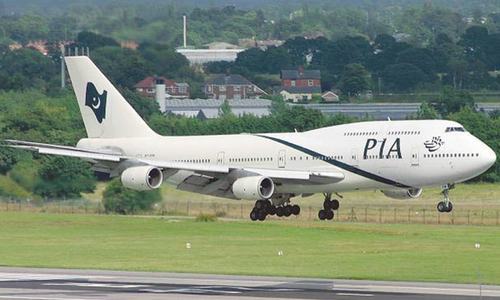IT isn’t often that Imran Khan’s ruling PTI and the PPP agree on anything. But they are on the same page when it comes to resisting the privatisation of loss-making white elephants that are sucking up state resources at a furious rate.
The figures are scary: between them, state owned enterprises (SOEs) have accumulated losses of Rs1.3 trillion, with their total debt and liabilities rising by 23.5 per cent last year. Together, they employ around 500,000 people. Keeping Wapda and PIA afloat cost the government Rs277 billion in 2017-18.
Take a look: Loss-making state-owned entities pose economic challenge to new govt
Given the huge subsidies and loans many SOEs get, it should not be a difficult decision to privatise them as soon as possible. And yet, successive governments have failed to get rid of them due to agitation by employees, or judicial interference in the privatisation process. Now it seems there is little appetite among local and foreign investors to get their fingers burned yet again.
Speaking at the recent World Government Summit in Dubai, Imran Khan wistfully recalled the days when PIA had helped Emirates Airlines get off the ground. This is a similar refrain to the one about South Korea using our five-year plan in the 1950s to jump-start its economy. Indeed, there is no shortage of believers who recall the days of the caliphate.
Between them, SOEs have accumulated losses of Rs1.3tr.
But in the here and now, we need to deal with the fact that the national airline is haemorrhaging cash at the rate of $30 million a month, and has debts totalling $2bn. It would be a brave investor who would take on such liabilities, especially when PIA has a militant union that resists privatisation tooth and nail. With 18,000 workers, the airline is grossly overstaffed.
This government has recently dropped Pakistan Steel Mills from its list of SOEs to be privatised, promising to produce a “restructuring plan” soon. Been there, done that. The basic problem with PSM is that the infrastructure was designed for an annual output of 3m tons, whereas the actual production capacity at the outset was geared for 1.1m tons.
The idea was that capacity would be increased, bringing down unit cost. But the government never managed to find the capital to expand production, and so the PSM continued to accumulate losses until it stopped production over two years ago due to nonpayment of its gas bills. Although it has fallen silent, its 18,000 employees still have to be paid.
Quite apart from these numbers, there is a lot of foot-dragging over privatisation among the civil and military bureaucracies. SOEs allow officers to get senior jobs on deputation; here, they are entitled to special allowances and perks. Retired generals, admirals and air marshals have cornered PSM, PIA, Wapda, the Pakistan National Shipping Corporation and other SOEs. Despite their ignorance of finance, they announce their ambition to turn their enterprises around, only to run into the wall of economic reality.
Political parties want to retain their grip on SOEs so they can give their supporters jobs they are unqualified for. In fact, this is a major reason for the losses some of these companies are racking up. Also, crooked politicians use their clout to give front companies lucrative contracts. Ministers in charge of SOEs like ports have been known to get expensive plots of land allotted to front men.
The state invests in enterprises for a variety of reasons. Often, utilities like water, gas and electricity are managed by governments. Or the state steps in when the private sector does not find a sector attractive, or needs too large an investment over too long a gestation period. The state often gets into the armament business for strategic reasons.
But once an SOE is up and running, the usual practice is for the state to disinvest, and let the private sector take over. However, this does not mean that privatisation is always a good thing: in the UK, the sale of water, gas and electricity distribution has meant rising prices to consumers coupled with bloated salary packages and bonuses to top executives. In Pakistan, many privatised entities were gutted, and the land and machinery sold. But at least the taxpayer did not have to cover their losses.
This is an equation many people — some of our judges included — do not seem to grasp. It doesn’t really matter if an entrepreneur makes a profit; what matters is that he doesn’t pass on his losses to the state. So when the previous government offered to sell PIA for a rupee, a chief justice expressed his anger at this seeming generosity. He was unaware of the accumulated losses that would have to be borne by the buyer.
This kind of fiscal ignorance, combined with official reluctance, will keep the government throwing good money after bad. Ultimately, we need to ask whether SOEs are being run for consumers and taxpayers, or for their staff.
irfan.husain@gmail.com
Published in Dawn, February 16th, 2019















































